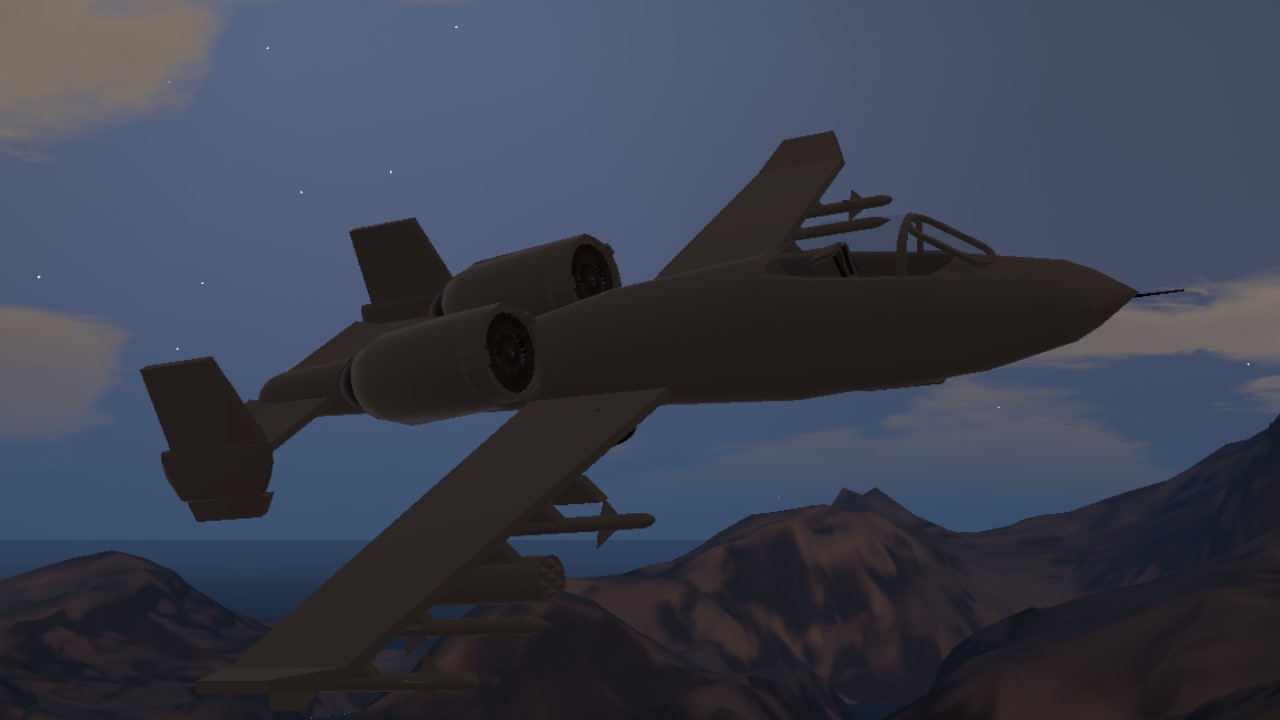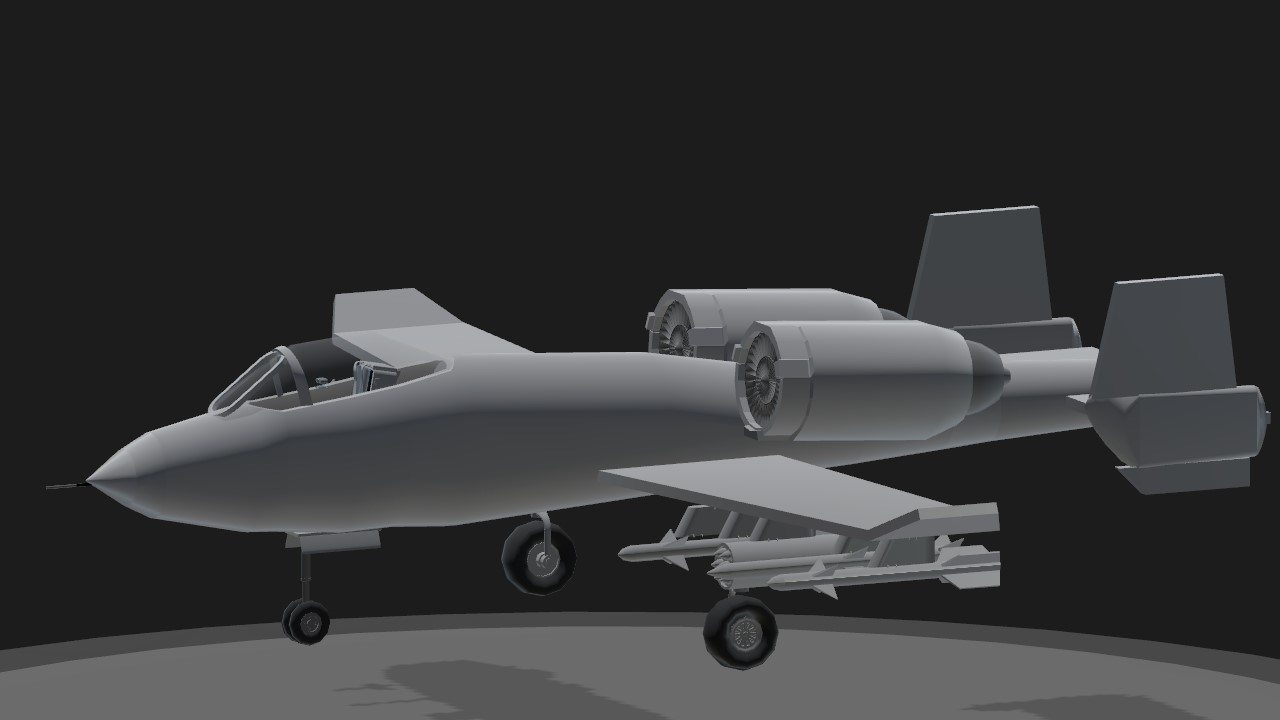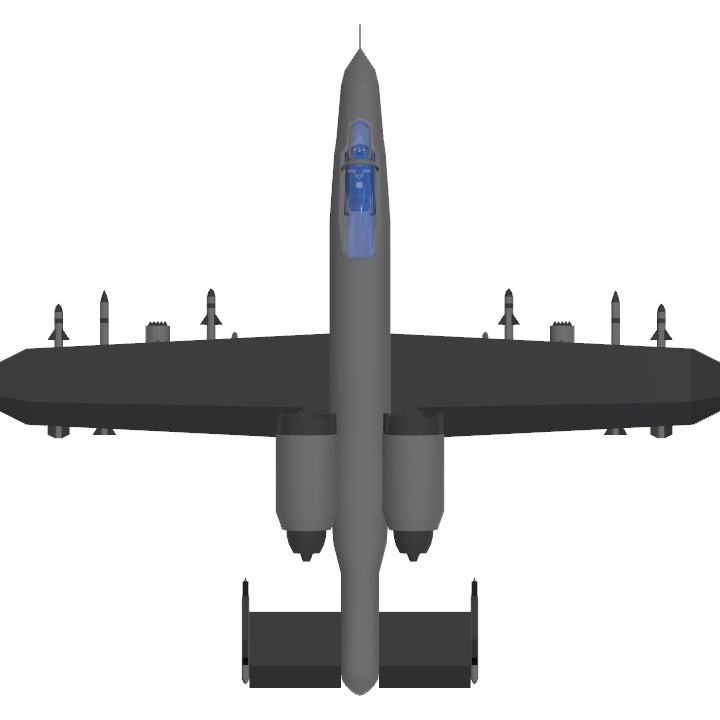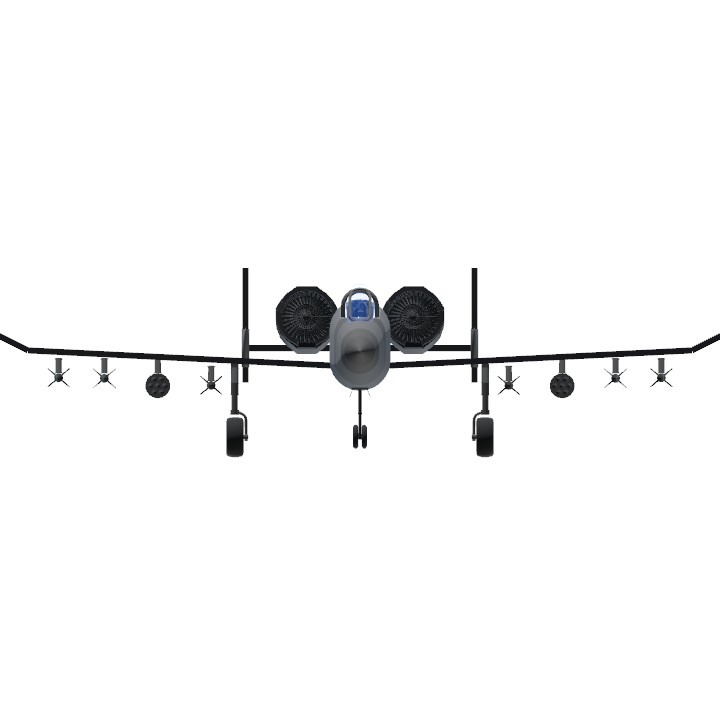No description.
Specifications
Spotlights
- RealMicroZackSP 5 hours ago
- SPTNR 6 hours ago
General Characteristics
- Created On Windows
- Wingspan 38.7ft (11.8m)
- Length 36.1ft (11.0m)
- Height 9.6ft (2.9m)
- Empty Weight 19,014lbs (8,624kg)
- Loaded Weight 21,815lbs (9,895kg)
Performance
- Power/Weight Ratio 1.131
- Wing Loading 88.8lbs/ft2 (433.5kg/m2)
- Wing Area 245.7ft2 (22.8m2)
- Drag Points 4062
Parts
- Number of Parts 110
- Control Surfaces 12
- Performance Cost 755







The A-10 Thunderbolt II, commonly referred to as the Warthog, is a ground-attack aircraft developed by Fairchild-Republic for the United States Air Force. It was designed in the early 1970s to provide close air support (CAS) to ground forces, engaging armored vehicles, tanks, and other ground targets. The A-10 is renowned for its survivability, effectiveness, and distinctive design.
Key Features
GAU-8 Avenger Cannon:
Armor and Survivability:
Low-Speed Maneuverability:
Twin Engines:
Weapons Flexibility:
Advanced Targeting:
Mission Role
The A-10 excels in close air support (CAS) and has also been used for combat search and rescue (CSAR) and forward air control (FAC) missions. Its ability to loiter over the battlefield and engage multiple targets makes it invaluable to ground forces.
Operational History
Nicknames
Enduring Legacy
The A-10 remains a beloved aircraft among pilots and ground troops alike for its reliability, firepower, and ability to endure and deliver results in challenging combat environments. Its reputation as a "soldier's best friend" ensures its iconic status in military aviation history.